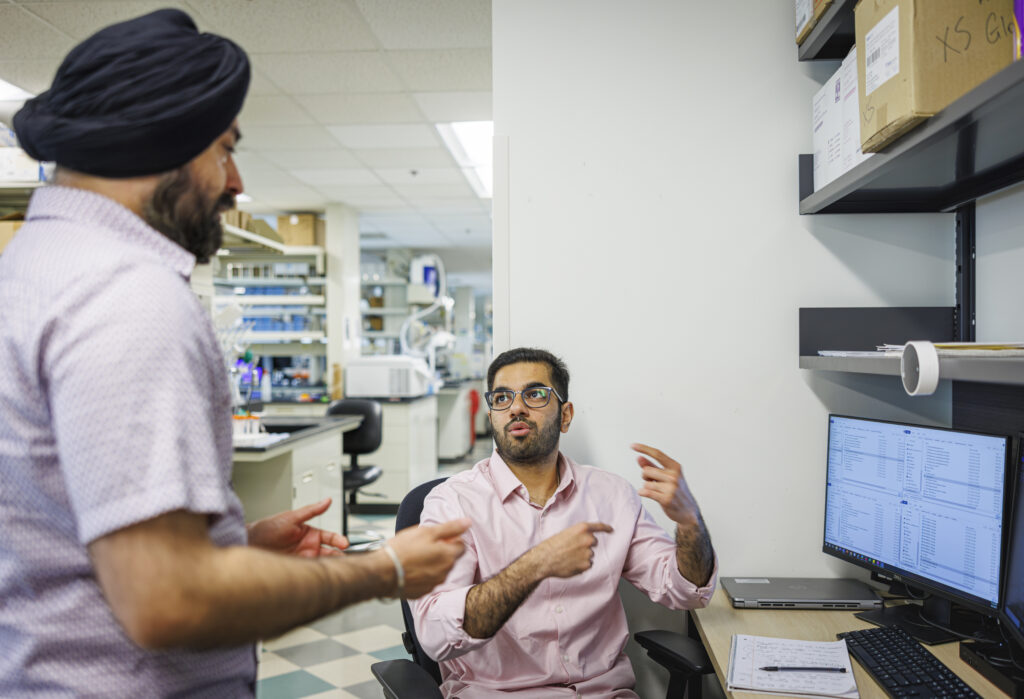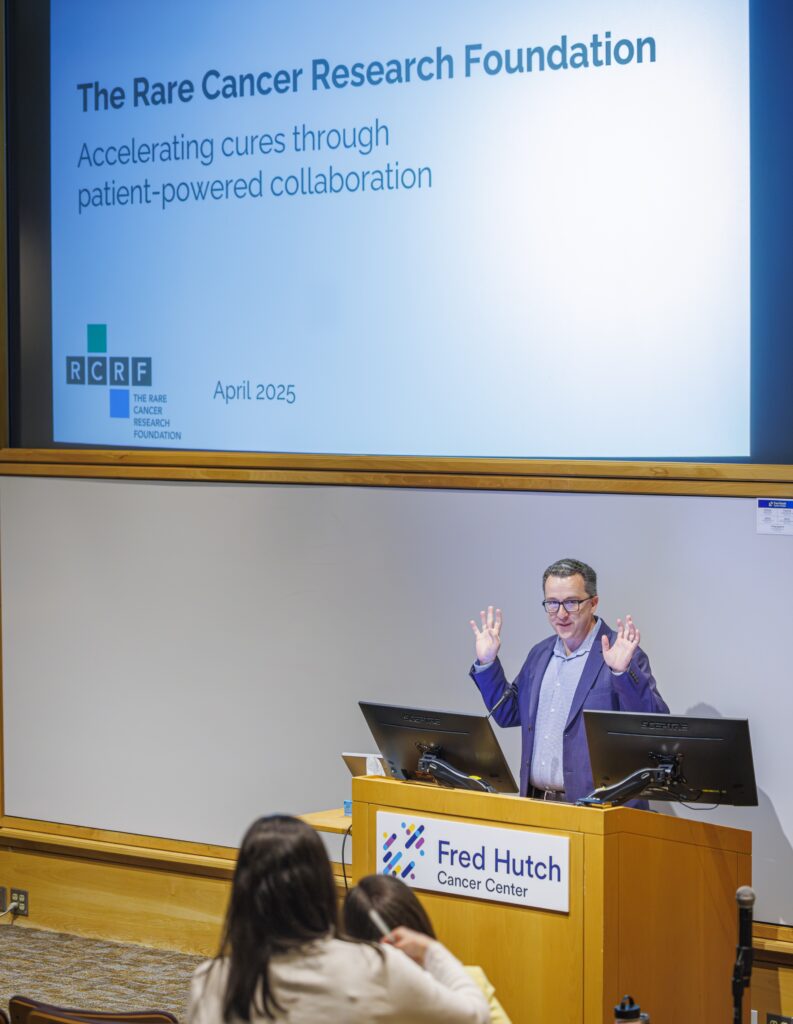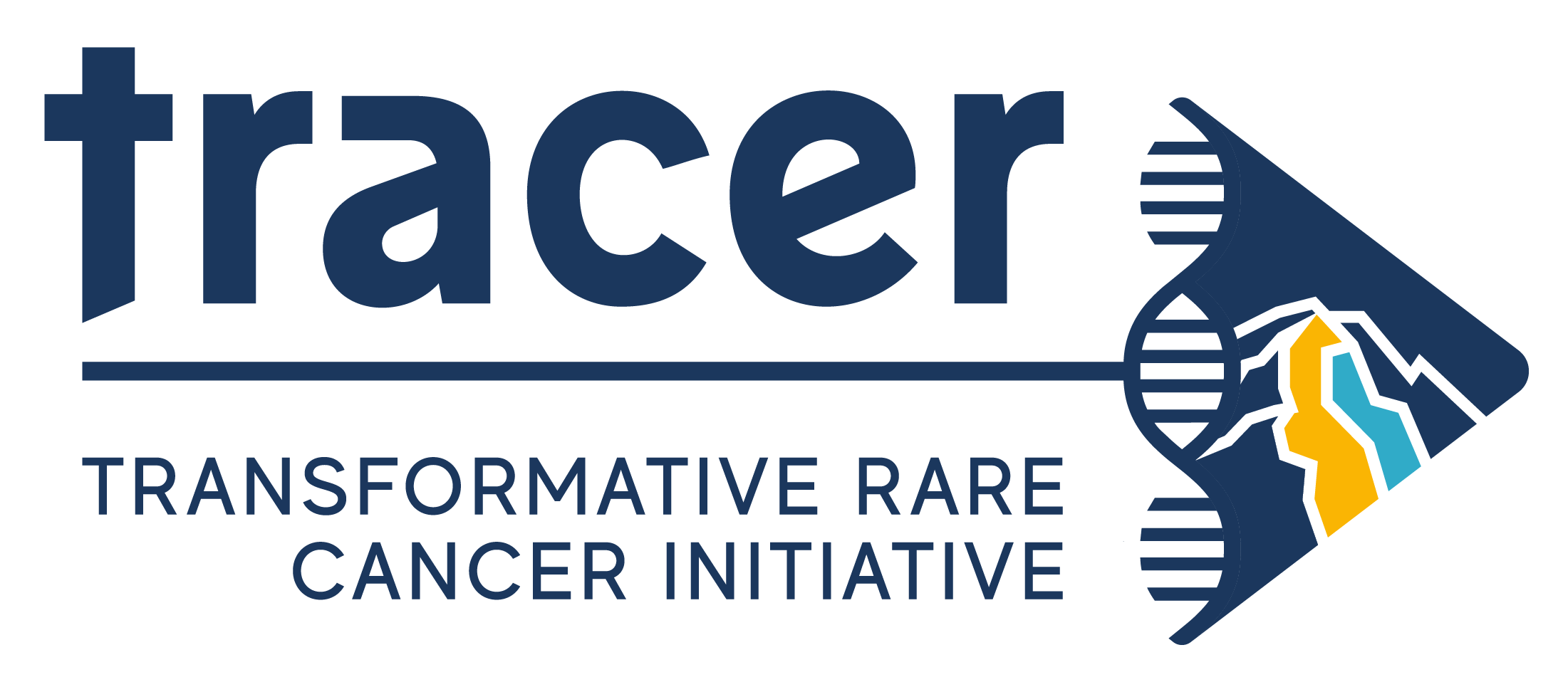Patients with rare cancers now have more opportunities to contribute to research on their diseases through a new tissue donation partnership between Fred Hutch’s Transformative Rare Cancer Initiative (TRACER) and the Rare Cancer Research Foundation (RCRF).
RCRF’s Pattern.org program, which works directly with oncologists and patients to collect fresh tumors and specimens from any hospital in the U.S., now will send samples from rare brain, gastrointestinal and gynecological cancers, including sarcomas, to TRACER in Seattle. The collaboration tackles a key obstacle to combating the diseases — the absence of biological material to study — and promises to help researchers uncover insights faster.
“One of the bottlenecks in rare cancer research is the lack of information at a molecular level about why a certain rare cancer occurs, so we can understand it better and develop better therapies and treatment options,” says Dr. Taran Gujral, TRACER’s director. “That lack of data comes from not having enough samples being sequenced, so this coming together of RCRF’s biobanking and the research at TRACER helps address this gap.”

Fresh specimens are essential for research. About 25 scientists studying dozens of different rare cancers are affiliated with TRACER, which Gujral founded last year. His team developed an AI-powered platform to test FDA-approved drugs — originally developed for common cancers — on tiny bits of tumors and tissues from rare diseases to identify opportunities for repurposing the medications. These samples also are used to generate viable cell lines, which are cancer models grown in a petri dish that mimic patient tumors and are used to study cancer behavior and test therapies.
That’s where RCRF comes in. The Durham, North Carolina-based organization has spent more than a decade building infrastructure to support rare cancer research. Its expertise in navigating patient consent, collecting living specimens and clinical data and coordinating safe transport across the country has helped generate more than 65 models for the broader research community.
RCRF’s platform enables patients to play a key role in accelerating rare cancer research — whether they’re getting care at a smaller rural or regional clinic or at a major academic cancer center.
“By providing this avenue for tissue and medical data donation, rare cancer patients can directly have an impact on the knowledge we have of their disease and the future of therapeutics for their disease,” says Barbara Van Hare, RCRF’s head of partnerships. “Patient-powered collaboration is essential for progress.”
The National Cancer Institute defines a rare cancer as one that affects fewer than 40,000 people in the U.S. annually — and some types are so uncommon, there are only a handful of diagnoses each year. With such small patient populations, even top academic centers often don’t see enough cases of a specific type to collect enough samples to support robust research.
“It’s really the numbers game we’re hoping to leverage with this partnership,” Gujral says. “That will increase the confidence in our predictions and in our work.”
“Rare cancers are hard enough, and nobody can solve this problem if we silo data.
We have to work collaboratively across the country.”
When people agree to donate a biological sample, RCRF’s secure collection process strips out identifying information, and the organization coordinates with surgical teams, supplying kits to make sure the samples are properly preserved and shipped.
Once specimens arrive in Seattle, TRACER researchers slice them into microscopic fragments — some cryopreserved, or frozen, for future experiments, and others immediately processed through the drug testing platform.
“Proper storage conditions are very important,” Gujral says. “These samples might be used in research the next day or even years later, once enough have been collected, so preserving them correctly is critical to ensuring their long-term value.”

TRACER researchers use machine learning and molecular profiling to predict how tumors will respond to the medications and select the most promising candidates to test on the tissue. They also generate molecular data, including genetic mutations, and create cell lines and patient-derived xenograft (PDX) models from fresh specimens — critical tools that are shared with the broader rare cancer research community.
The resulting insights will be added to a shared repository so other scientists can mine the data for new patterns or hypotheses, says Marshall Thompson, Ph.D., RCRF’s chief technology officer. The organization is preparing to launch the Pattern Data Commons, a publicly shared resource to pool clinical and molecular data on rare cancers so researchers across institutions can build on findings rather than work in isolation.
“Rare cancers are hard enough, and nobody can solve this problem if we silo data,” Thompson says. “We have to work collaboratively across the country.”
That spirit of collaboration is what drives both organizations, making it a natural fit to work together, Thompson said at a symposium TRACER hosted in April.
“It feels really good to be in shared company,” he told the group of rare cancer researchers who’d gathered to connect with and support each other. “It’s an interesting opportunity with shared infrastructure to do science in a different way.”
That’s the whole point of TRACER’s semiannual symposiums and of the new tumor donation partnership with RCRF, Gujral agrees.
“We aren’t here to reinvent the wheel or create a parallel system, but to work with people who are pioneers in this area,” he says. “This is about coast-to-coast efforts coming together to give us a better outcome than us trying to do everything on our own and them trying to do everything on their own.”
For more information visit TRACER at https://rarecancerprogram.com/ and RCRF at https://rarecancer.org/
